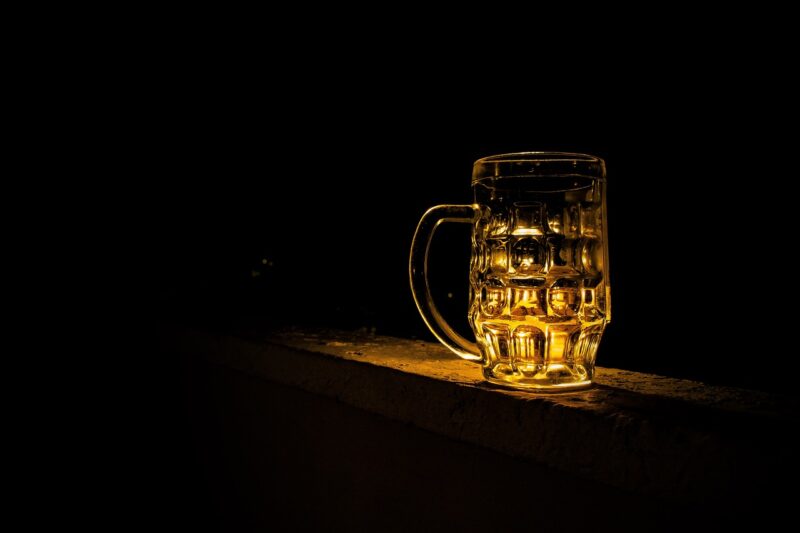Thirst-Quenching Beverages: A Journey Through the History of Drinks
November 18, 2024

Beverages have played an indispensable role in shaping civilizations, cultures, and social interactions. From the refreshing experience of sipping a cool drink on a hot day to the intricate rituals surrounding coffee and tea ceremonies, the evolution of drinks mirrors humanity’s journey across time. In this article, we explore the remarkable history of thirst-quenching beverages, highlighting key moments, significant inventions, and cultural significance that underscore our age-old quest for hydration and enjoyment.
1. The Birth of Beverages: Ancient Origins
Throughout history, the earliest beverages were created from natural ingredients found in the surrounding environment. Water remains the most fundamental drink; however, as early humans began to harness agricultural practices, a broader spectrum of beverages emerged.
**Water:** The essence of life, water was the first and most crucial drink. Ancient civilizations often constructed aqueducts and wells to ensure access to clean water, recognizing its importance for health and survival.
**Fermented Drinks:** The discovery of fermentation was revolutionary. Ancient Sumerians crafted beer from barley around 5,000 BCE, giving rise to a tradition that remains strong to this day. Similarly, ancient Egyptians brewed beer from emmer wheat and consumed it daily, reinforcing its role in their culture.
**Wine:** The earliest evidence of wine production dates back to 6,000 BCE in present-day Georgia. Ancient Egyptians held wine in high esteem, using it in religious rituals and social gatherings, while Greeks later popularized it, with even the god Dionysus representing the drink’s significance in society.
2. The Rise of Tea and Coffee Cultures
As trade routes expanded and cultures intersected, new beverages gained popularity.
**Tea:** Emerging from ancient China, tea has a storied history dating back to around 2737 BCE when Emperor Shen Nong accidentally discovered its brewing. By the Tang Dynasty (618–907 CE), tea had transformed into a ceremonial drink, leading to the establishment of tea houses across China and encouraging a tea culture that spread globally.
**Coffee:** The history of coffee began in Ethiopia during the 9th century, where legend states a goat herder observed his goats becoming lively after eating coffee cherries. By the 15th century, coffee was cultivated in Yemen, later reaching the Ottoman Empire, and within a few decades, coffee houses became essential social hubs throughout Europe.
Throughout these eras, both tea and coffee differentiated themselves based on cultural practices, preferences, and their association with social and intellectual gatherings.
3. Modern Innovations: Soft Drinks and Beyond
With the advent of the industrial age, the beverage landscape expanded dramatically. Soft drinks and non-alcoholic alternatives surged in popularity, transforming consumer habits.
**Carbonated Beverages:** The invention of carbonated water in the 18th century marked the beginning of fizzy drinks. In 1767, Joseph Priestley created carbonated water, leading to the emergence of brands like Schweppes and the subsequent creation of flavored soft drinks. By the late 19th century, soda fountains became popular fixtures in urban areas, with brands like Coca-Cola and Pepsi entering the market and dominating the drink industry.
**Energy Drinks:** As public demand for functional beverages evolved, energy drinks emerged in the late 20th century. Brands like Red Bull and Monster capitalized on the need for physical and mental stimulation, blending caffeine, taurine, and other ingredients that appealed to sports enthusiasts and busy professionals alike.
**Health and Wellness Drinks:** The pursuit of health and well-being has also spawned an array of beverages aimed at detoxifying, rehydrating, or providing nutritional benefits. Smoothies, infused water, and kombucha have gained traction in recent years, reflecting society’s desire for beverages that support a healthy lifestyle.
4. Cultural Significance of Beverages
Beverages extend far beyond mere hydration; they hold deep cultural meanings and signify various aspects of life, community, and traditions across the globe.
**Rituals and Traditions:** Drink rituals, such as the Japanese tea ceremony or the Ethiopian coffee ceremony, emphasize hospitality and connection among participants. These traditions often incorporate specific practices, tools, and ways of serving that illustrate respect for both the beverage and the guests.
**Symbolism and Celebration:** Beverages are often central to celebrations and significant life events. Champagne is synonymous with toasting during weddings and milestones, while the communal sharing of drinks like mead or cider can signify friendship and unity.
**Social Commentary:** Drinks can also serve as reflections of social class, politics, and identity. In many cultures, specific beverages embody values of sustainability, local sourcing, or fair trade practices, showcasing consumer preferences tied to ethical considerations.
5. The Future of Beverages: Sustainability and Innovation
As consumer awareness increases regarding health, sustainability, and ethical sourcing, the future of beverages will undoubtedly focus on innovative practices.
**Plant-Based Alternatives:** The growing popularity of plant-based diets has influenced the beverage market significantly. Oat milk, almond milk, and other dairy alternatives are redefining the way consumers enjoy their favorite drinks like coffee or tea.
**Sustainable Practices:** Companies are increasingly aiming for sustainability, with efforts to reduce plastic use in packaging, implement eco-friendly production methods, and source ingredients responsibly. The future sees a growing emphasis on transparency and the ecological impact of beverage choices.
**Tech-Driven Creativity:** Technology plays a pivotal role in revolutionizing beverage experiences, from home brewing appliances that create personalized drinks to apps facilitating artisanal beverage access. The blending of culinary arts and technology hints at exciting, customized beverages tailored to individual preferences.
Conclusion
The history of beverages is an intricate tapestry woven from various cultures, innovations, and tastes, quenching humanity’s thirst throughout the ages. As our understanding of health, wellness, and sustainability evolves, so too will the drinks we consume. The journey of beverages continues, promising thrilling discoveries and a deeper appreciation for the complexities behind our favorite thirst-quenching selections. Each sip taken today is a connection to the vast and colorful history of drinks, one that weaves the story of humanity together, drop by refreshing drop.








